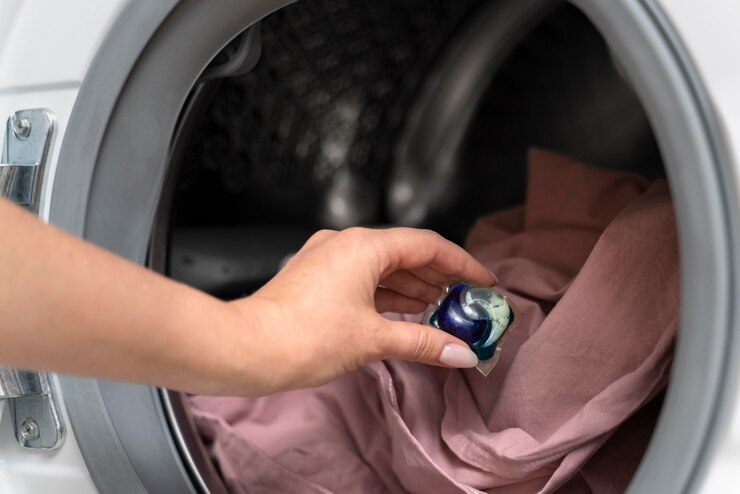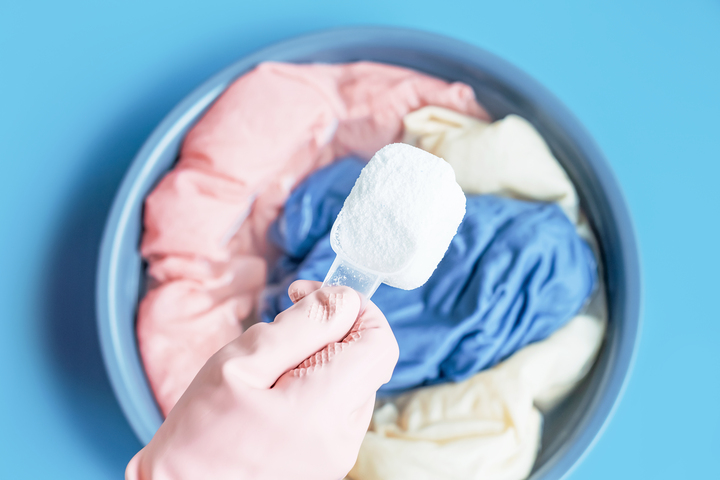
Eugene Chai
We all have those special garments in our wardrobes – the delicate fabrics that require a little extra TLC in the laundry. Whether it’s a silk blouse, a lace dress, or a cashmere sweater, knowing how to properly care for these delicate items can help them last longer and stay looking their best. This guide will delve into the world of delicates, explaining what they are and offering expert tips and techniques to ensure your most cherished clothes receive the gentle treatment they deserve.
What Are Delicates?
Delicates are garments made from fabrics that require a gentler approach to washing than your typical sturdy cotton t-shirts or jeans. This means these fabrics tend to be more fragile and prone to damage from harsh washing methods. Common examples of delicates include silk, lace, satin, velvet, linen, wool, cashmere, and certain types of synthetic fabrics like rayon or modal. These materials often require a delicate wash setting on your washing machine or even hand washing to preserve their delicate fibres and intricate details.
Hand Washing vs Machine Washing for Delicates
The age-old question for delicate laundry: hand wash or machine wash? The answer depends on several factors, including the type of fabric, the garment’s construction, and the care label instructions. Hand washing is generally the safest option for delicate items, as it allows for greater control and minimises the risk of damage. However, some delicate garments may be machine washable if you use a gentle cycle and a mesh laundry bag. Always check the care label for specific instructions and recommendations.
Tips for Washing Delicates
Washing delicates requires a gentle approach and careful attention to detail. Here are some essential tips to keep in mind:
1. Check the Care Label
Before you even think about washing a delicate garment, always check the care label for specific instructions. The care label is your guide to proper washing, drying, and ironing methods. It will tell you whether the garment is machine washable, requires hand washing, or should be dry cleaned only.
2. Separate Your Clothes
Always separate your delicate clothes from your regular laundry. This prevents damage from harsher fabrics and ensures your delicates receive the gentle treatment they need. Consider washing delicates in smaller loads to minimise agitation and friction.
3. Use a Laundry Net Bag
When machine washing delicates, always use a mesh laundry net bag. This helps protect the delicate fabrics from snags, pulls, and excessive friction that can occur during the wash cycle.
4. Keep Zips and Buttons Fastened
Before washing delicate garments, ensure all zippers and buttons are fastened. This helps prevent snags and tears that can occur when loose zippers or buttons catch on other garments or the washing machine drum.
5. Select the Correct Wash Programme
If machine washing, choose a delicate or hand-wash cycle on your washing machine. These cycles use less agitation and a slower spin speed, minimising the stress on your delicate garments. Make sure to use cool or lukewarm water, as hot water can damage delicate fabrics.
6. Use the Correct Laundry Detergent
Opt for a gentle detergent specifically designed for delicates. These detergents are formulated to clean effectively without harsh chemicals that can damage delicate fibres. Avoid using regular detergents or bleach, as these can be too harsh for delicates.
7. Avoid Using Fabric Softeners
Skip the fabric softener when washing delicates to maintain their natural softness and drape. Fabric softeners can coat delicate fibres, reducing their breathability and potentially causing damage.
8. Air Dry the Garments
Air drying is the gentlest way to dry delicate garments. Lay them flat on a clean towel or hang them on a padded hanger, away from direct sunlight or heat. Avoid using a dryer, as the high heat can cause shrinkage and damage to delicate fabrics.
The Difference Between Delicate and Normal Wash
The main difference between a delicate wash and a normal wash lies in the level of agitation and water temperature. A delicate wash cycle uses gentler movements and a slower spin speed to minimise stress on the fabrics. It also typically uses cool or lukewarm water to prevent damage to delicate fibres. A normal wash cycle, on the other hand, uses more vigorous agitation and a faster spin speed, making it suitable for sturdy fabrics like cotton or denim.
Choosing the right wash cycle is crucial for maintaining the quality and longevity of your garments. For delicate items, always opt for a delicate wash cycle or hand washing to ensure they receive the gentle care they deserve.
How to Hand Wash Delicate Clothes If Delicate Wash Is Not Available

If your washing machine doesn’t have a delicate wash setting, or if you prefer a more hands-on approach, hand washing is a great option for cleaning your delicate clothes. Here’s a quick step-by-step:
- Start by filling a basin or sink with cool water and add a gentle detergent specifically designed for delicates.
- Submerge your garments and gently agitate them with your hands, avoiding harsh scrubbing or twisting.
- Rinse thoroughly in cool water until all the detergent is gone, then gently press out excess water. Be sure not to wring the fabric.
- Lay the garments flat on a clean towel to absorb more water before hanging them to air dry.
Remember, hand washing requires a gentle touch and patience. Avoid harsh scrubbing or wringing, and handle your delicate garments with care. With a little practice, you’ll become a pro at hand washing your delicates and keeping them looking their best.
Delicate Care: A Gentle Touch for Lasting Beauty
Caring for delicate garments is an investment in their longevity and your personal style. By understanding the nuances of delicate wash cycles, hand-washing techniques, and proper drying methods, you can ensure your most cherished garments remain beautiful and wearable for years to come.
And for those times when you need a helping hand with your laundry or other cleaning services, don’t hesitate to seek professional assistance. Whether it’s laundry services or dry cleaning services, experts can provide specialised care to keep your clothes looking their best. With a little knowledge and effort, you can confidently care for your delicate garments and enjoy their exquisite beauty for many years to come.